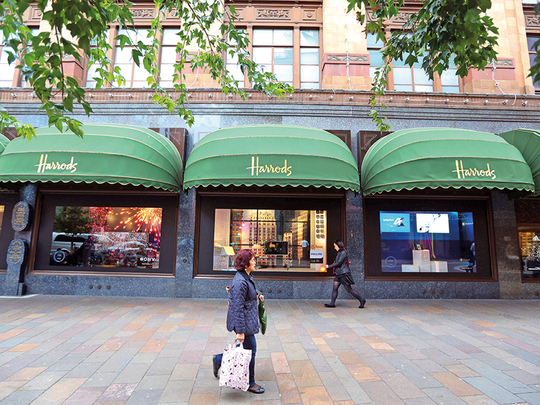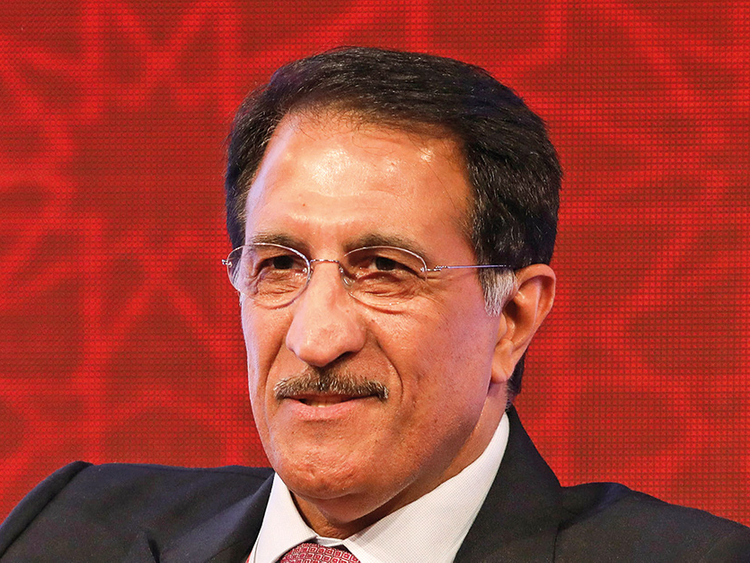
Doha: Qatar said it will invest £5 billion ($6.3 billion) in the UK over the next five years, deepening the countries’ trade ties as London prepares to quit the European Union.
“In our last strategy session we committed a big amount of investment in the UK, especially in infrastructure,” the chief executive officer of the Qatar Investment Authority (QIA), Shaikh Abdullah Bin Mohammad Bin Saud Al Thani, said Monday at an investment forum in London. “There is a pressure from my board to diversify in terms of geography and asset class, but we are still looking, even after Brexit, for opportunities.”
He disclosed no further details beyond the sum of the planned investment and its timeline.
A delegation of more than 400 Qatari officials and business executives, led by the country’s prime minister, is visiting London and Birmingham for a two-day meeting with UK counterparts, according to Qatari government statements. The visit concludes on Tuesday, a day before UK Prime Minister Theresa May plans to start the two-year clock on Brexit negotiations by invoking Article 50 of the Lisbon Treaty.
Qatari investments would help to cushion the economic fallout from Brexit on both sides. Ahead of the break, the UK is taking steps to maintain foreign investments, going as far as to provide written assurances to Nissan Motor Co. in an effort to stem competition from other EU members that want to poach talent and capital.
Big stake
Qatar, too, has a big stake in keeping the UK economy and asset prices strong during and after Brexit. It’s the world’s biggest producer of liquefied natural gas, and delivers 90 per cent of the UK’s imports of the fuel. The country stepped in to invest billions in Barclays during the global financial crisis and has built up a stock and real estate portfolio worth more than £40 billion over the past decade.
“Qatar doesn’t see Britain leaving the EU as impacting their relationship and it may be an opportunity for it to be stronger,” Rachel Pether, an adviser at the Sovereign Wealth Fund Institute, said in a phone interview from Dubai on March 22.
Qatari Prime Minister Shaikh Abdullah Bin Nasser Bin Khalifa Al Thani confirmed that approach.
“Qatar has great confidence in the UK, and this confidence will be demonstrated in the additional investments we will make over the next decade,” he said as the event opened at London’s Grosvenor House Hotel. He disclosed no details about prospective deals.
The delegation to the UK includes chief executive officers of Qatar Petroleum and Qatar Airways. George Iacobescu, Chairman and CEO of Canary Wharf Group, partially owned by QIA, and Xavier Rolet, CEO, London Stock Exchange Group, another portfolio company, are also attending the investment forum.
“If you ask anyone here they won’t have any clue at what’s happening in this economy,” Al-Thani, the chief executive officer of the Qatar Investment Authority, said of the UK. But “the long holding of our positions gives you a sign of our satisfied return,” he said.
Protecting the value of Qatari assets in the UK — which range from Harrods department store, a stake in J Sainsbury and properties such as Savoy Hotel and the Shard skyscraper — isn’t the only motivation behind the country’s roadshow. Lower oil prices have sapped government revenue, forcing Qatar, the richest country in the world on a per capita basis, to issue $9 billion bonds in May. Officials are seeking more investment flows as the country diversifies its economy away from oil and gas and continues a $200 billion infrastructure upgrade before the 2022 World Cup.
“We want to attract institutional money from the UK, especially through our forthcoming exchange-traded fund that will list on the Qatar Stock Exchange,” said Fahmi Alghussein, CEO of Doha-based asset manager Amwal, who attended the London event.
One indicator of Qatari appetite for investment in the UK is continued purchases of real estate, both by the state fund and individuals. Foreign investors see the top end of London’s property market as an attractive haven, with the pound’s slump offsetting political uncertainty, according to Laurence Ronson, sales director at Ronson Capital Partners.
“London looks like exceedingly good value in terms of a weakened sterling,” Ronson, who is developing two luxury buildings in the capital, said in an interview in Doha on March 23. “We’ve seen that with Chinese, Middle Eastern and American money looking at opportunities. All the doom and gloom that has been predicted post-Brexit has not happened. In fact, the economy is growing.”













